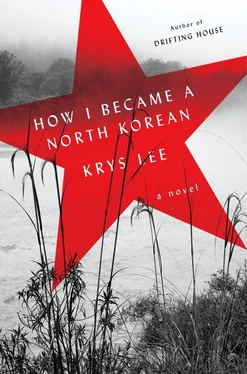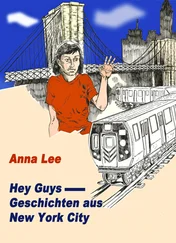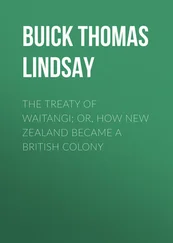“My name’s Daehan,” I offered. “Yeah, I’m a Joseon -jok .”
“The burn happened at a lumber mill in your country,” said Yongju. I’d been caught staring at Cheolmin’s face.
Cheolmin said, “Maybe Joseon -jok . Or he could be a spy from down South.”
Yongju made a small noise, something between a quiet chuckle and a sigh. “Our country’s in bad shape, but not that bad. You think anyone can be a spy?”
I said, “I know how to start fires from practically nothing, I can build huts and know the difference between good and bad mushrooms. And I’m practically a compass. And there’re lots of other things I know how to do. I’m pretty useful.” I stopped, surprised by myself.
“ Meojori, that’s a big mouthful of bragging about yourself,” said Cheolmin, frowning.
I didn’t know what meojori meant, but it didn’t sound pleasant. The modus operandi in East Asian cultures was modesty, but I’ve never gotten the game of humility right, or its opposite, what I call the American swagger. I tried correcting myself. “I’m just trying to say… I wouldn’t be an absolutely terrible burden to have around.”
Though our accents were more or less the same, by then it was clear to me that these two were not Joseon -jok . For one, there was their peculiar diction. And from the onset Yongju was too vigilant and tense, making broad sweeps of the scene with his eyes. Cheolmin was no different, his neck jerking to look behind him like a tic, his hands flexing and bunching together with his breath.
“Come on, we have to keep moving,” Yongju said.
He retreated from the alley. Cheolmin followed, a sour smell trailing behind him. No one outside my family had ever put themselves on the line for me; I wasn’t about to let them walk away. When we turned the corner I found my plastic cover that the crooks had tossed, ignorant of its usefulness even with a hole in it, and my books. No one ever seemed to want books. I dusted them off.
The two moved steadily toward the mountains. I continued following them.
Cheolmin lurched at me, his fist raised in the air. “There’s no space for you!”
I halted midstep.
Yongju said, “There could be space. You heard what Namil said last night, it would help to have a Joseon- jok with us.” He turned to me. “You’d be a good scout?”
“How can we trust him?”
“My eomma was born across the river in Hamgyong-do, actually. We crossed back into China early.”
“Really? Your eomma was from our country?”
Cheolmin looked suspiciously at my clothes.
“That must’ve been really early. You’ve got Chinese papers, I.D. card, everything?”
“I did, but…” I waved my hand at the alley that was no longer behind us. I didn’t mention my next crossing to America — considering what America meant to their country, I assumed they wouldn’t accept me if they knew.
Yongju said to Cheolmin, “You know a group’s the only way you survive, Joseon- jok or not. His kind can help out — they can scout ahead and approach people without any danger. Let’s take him with us.”
“It’ll be crowded, meojori .” Cheolmin spat as he cursed but began walking anyway.
“Come on.”
Yongju rested a hand on my shoulder.
“Come with us.”
This was my China: a mountain dugout opening into a cave several meters deep. The drip of water during rain, the scratchy music of the trees outside. A bed of stones and paper to keep the cave dry. Blankets, clothes from the city dump, and donation bins we would break into, anything to create heat in the chilly underground. A small cry, a young, pebbly voice floating alone in the dark, then silence.
Each morning I woke up in the hollow full of orphans who had crossed out of hunger, to the music of misery in their arrhythmic breathing, the grinding of their rotten teeth. The morning cold burrowed into my bones and made its home there and my hands and knees became slippery on the cool earth, and my eyelashes thick with the loose soil that trickled down. It was so dark that the word dark was inadequate. So dark it was as if I was dead. The cave was full of haunted life and the stink of urine, and the only relief was to close my eyes and pretend that the darkness wasn’t there.
When the truck drove away with our women, I had collapsed into the beveled tire tracks, stared down at my useless hands, and searched for words to comprehend how I felt. Grief. Wretchedness. Disbelief. But there were no perfect words. The men left behind began to talk. There was some heated discussion between us, a little pushing.
Someone said, “We’re too close to the border. This place is crawling with surveillance.”
Another said, “We have to make our own way.”
One man gripped his chest as if to hold his heart in.
Soon they scattered under night’s sheath. Some must have headed for the mountain ranges nearby; the bold or lazy ones followed the winding paved road or looked for a sympathetic farmer who might hire them and give them a corner to sleep in. Maybe a few had relatives, a phone number, a lead. It didn’t matter to me then. All I could do was stare. Sound subsided. I sat crouched for so long that matter melted and my legs grew roots into the dry packed ground. I became the trunk of a tree. I no longer felt cold, heat, sadness, or fear.
Maybe I would have lapsed into sleep and frozen that night and died peacefully. But something moved in the periphery of my sight.
I ripped a branch off a rotting tree and clutched it between us. Splinters embedded in my palms, but I didn’t feel them until later.
It was the boy from the hut. He said, “I’m on your side! It’s me! Remember, the bun?”
I saw the outlines of his face in the dark, then the black gaps between his teeth.
He jumped up and down, warming himself up. “It’s your first time crossing, isn’t it?”
I nodded.
“You came alone? With parents?”
I shook my head. “I’m alone now.”
When he saw that I wasn’t going to move, he said, “You can’t stay here. You want to get as far away from the border as you can, and you better learn the Han people’s language. Fast. The ganna saekki get everyone by the border, just wait. It’s my third time crossing. The first time I got picked up the morning after I crossed. They’ll send you back into the asshole of our country — you’re older than me, and you don’t want to know what they’ll do to you.”
I didn’t care. I sank my head into my hands and stayed huddled. But Namil waited for me.
The cave took us hours to reach. Namil said the group he’d stuck with when he crossed the last time had discovered it by following an older man. The man had left, vowing to walk all the way to a safe country if he had to.
• • •
At first I didn’t leave the cave. But I quickly realized that I needed to do my share and help the others, who spent their time in a hopeless cycle of collecting wood or working at small farmsteads or at logging sites that dotted the mountains for food with no pay. I cleaned myself as best I could, hoping that my height differentiated me from the other four boys, who were stunted in growth by their lean years of living. I began venturing out to the nearest town in search of work, food. Information. I was afraid of every single person I met, knowing what it would mean to be repatriated. Shadows scared me. A stranger’s voice, footsteps, all of it sent me on dizzying detours. I had never been so afraid of people.
I forced myself to burrow through the nearest village dump to salvage what we could use. Sometimes I found canned goods. What people discarded in China amazed even me. I rinsed out a pigpen in exchange for eggs and potatoes, and back on the mountain I planted my first potato eyes. We rotated all-night guard duty in case our cave, which we had camouflaged with tin and brittle branches, was raided. I slept with my shoes on.
Читать дальше












